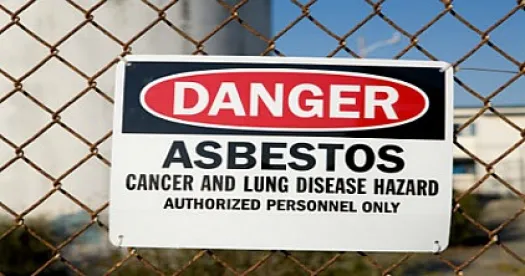Applying Wisconsin law, a Federal judge ruled in Suoja v. Owens-Illinois, Inc. that an asbestos plaintiff’s expert’s “cumulative exposure” causation theory accounted only for asbestos exposure, but not for dosage, and thus was insufficient to prove that unquantified exposure to an asbestos-containing product was a substantial factor contributing to plaintiff’s mesothelioma. A judgment in favor of the defendant asbestos manufacturer was rendered.
The plaintiff died from mesothelioma after working as a pipe insulator for three decades. In order to find liability on the part of the manufacturer of the asbestos-containing product at issue (Kaylo), plaintiff had to show exposure to the product and further, that such exposure constituted a substantial cause of his mesothelioma. Although the Court found testimony insufficient to sustain a finding of Kaylo exposure, it nonetheless discussed plaintiff’s proffered expert causation testimony.
To establish substantial factor causation, the evidence must show that the alleged causative agent contributed to the injury in such a way as to lead a reasonable person to regard it as a cause, although the alleged causative agent need not be the most immediate or most important cause of the injury. Plaintiff’s expert testified that Kaylo was a substantial factor causing plaintiff’s mesothelioma because of plaintiff’s “cumulative exposure.” Under this theory, the expert testified, every asbestos exposure contributes to the totality of the exposure and there is no scientific way to disaggregate an individual’s exposures to asbestos or to say that one exposure was substantial and one was insubstantial.
The expert tried to differentiate his cumulative exposure theory from his withdrawn theory that “each and every exposure” to asbestos could be deemed a substantial cause leading to the mesothelioma; to the contrary, the expert testified that his “cumulative exposure” theory means that the sum of the exposures is the requisite causative event. The Court did not buy it: just because the expert gave his theory a different name, it didn’t change what it was.
The Court concluded that, because mesothelioma is a dose-responsive illness, the expert’s testimony failed to connect any specific quantum of Kaylo exposure to the plaintiff’s mesothelioma but instead, was based on the expert’s holistic view that every exposure to asbestos, no matter how minimal, is a substantial contributing factor to the mesothelioma. “In other words, if there is exposure, then there is causation.”



 />i
/>i

